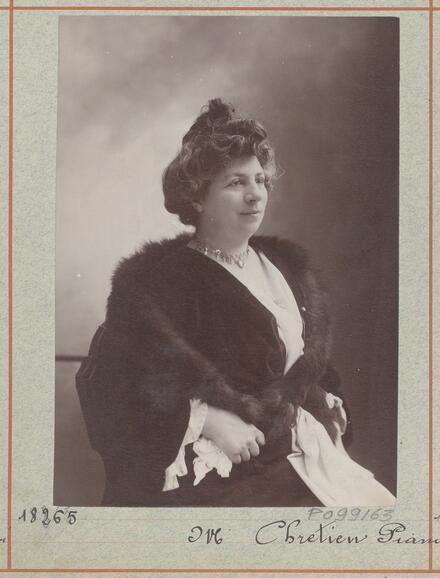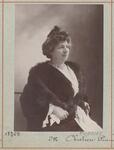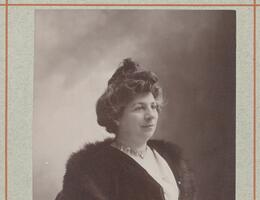
Hedwige CHRÉTIEN
1859 - 1944
Composer
The granddaughter of a violinist from Compiègne, Hedwige Chrétien entered the Paris Conservatoire in November 1872. She remained there for fifteen years, attending classes in solfège (Lebel), keyboard and piano (Massart), harmony and subsequently counterpoint and fugue (Guiraud). She also spent a short time in the organ class of César Franck, who judged her as follows in 1887: ‘Remarkable student. Very hard-working.’ In order to make a name for herself in Paris, she took part in numerous composition competitions and was awarded a prize by the Société des Compositeurs de Musique in 1886 for the poème lyrique L’Année. Composing tirelessly for the next half-century, she left an impressive catalogue of 250 titles, contributing to every genre: chamber music (for both strings and brass), orchestral music, ballets, methods and teaching pieces, works for piano or organ, and light music. She wrote an operetta in 1904 (Le Petit Lunch, 1904) and composed the music for a musical comedy, Bécassine aux bains de mer, thirty years later. Although her few biographers have so far been very discreet about her personal life, it should be noted that the beans were well and truly spilt on it by the court reports of the Paris newspapers in the summer of 1901. Having herself been brought up by separated parents, she had a tumultuous marriage (1887-97) to the flautist Paolo Gennaro. He was denied custody of their two children after the divorce, so he hid their son in a boarding house and tried to kill Hedwige’s stepfather, whom he suspected of preventing him from seeing his daughter.


